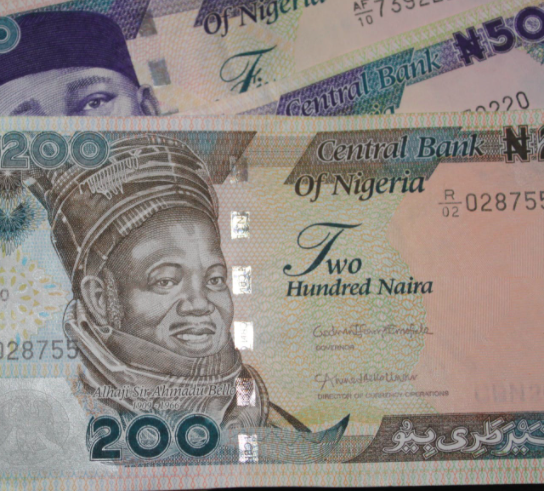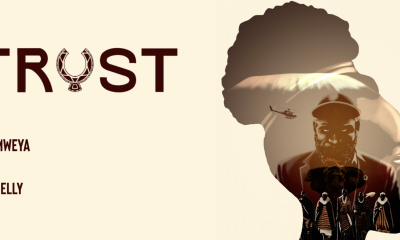Nigeria has finally launched eNaira after postponing the initial rollout set for October 1. Read this and other top crypto stories in this weekly news roundup.
Nigeria Finally Launches eNaira
Nigeria has finally launched the eNaira, making it the first African country to roll out a central bank digital currency (CBDC).
According to the governor of the Central Bank of Nigeria (CBN) Godwin Emefiele, the eNaira, and the Naira have the same value. “The eNaira and the physical naira will have the same value and will always exchange at one naira to one eNaira,” he said.
The CBN hopes that the digital currency will improve its monetary policy, boost financial inclusion, and improve the efficiency of transactions.
“The adoption of the central bank digital currency and its underlying technology, called blockchain, can increase Nigeria’s gross domestic product by $29 billion over the next ten years,” said President Muhammadu Buhari during the launch.
The eNaira platform has integrated 33 banks and onboarded over 2,000 users. The website is receiving more than 2.5 million visitors each day.
Tech Startup in SA Develops Gaming App Based on the Bitcoin Blockchain

Skrmiish, a tech startup in Cape Town, has developed a gaming app based on the Bitcoin blockchain to monetise users’ wins. The app will also have a layer-two bitcoin wallet.
The company wrote in a press statement: “Skrmiish is the world’s first app that allows any user to compete and monetise their experience on the blockchain. Currently, in week ten of global beta testing, Skrmiish has had over 20,000 downloads, with over a million in in-app currency wagered. Once the crypto-based digital wallet is introduced to the app in November 2021, it will unleash the full global commercial potential of the tech.“
According to Ventureburn, “the payment solution allows multi-directional instant payments at 10,000 transactions per second.”
Standard Bank Notifies Crypto Arbitrage Traders in SA of Impending Account Termination
South African bank, Standard Bank, is reportedly notifying crypto arbitrage traders of impending account termination. The bank says that it aims to make its clients comply with regulations, hence the decision.
The actions have, however, raised questions on how the bank is deciding which accounts will be terminated. For instance, one of the affected businesses says that the bank is terminating its account simply because of its arbitrage business model.
“Standard Bank is committed to treating its clients fairly and constantly strives to strike the appropriate balance between maintaining client relationships and ensuring regulatory compliance,” a spokesperson of the bank said.
Stellar to Facilitate Remittances in Africa Using USDC
 The Stellar Development Foundation (SDF) is working with Flutterwave to facilitate remittances between Europe and Africa using USD Coin (USDC).
The Stellar Development Foundation (SDF) is working with Flutterwave to facilitate remittances between Europe and Africa using USD Coin (USDC).
Flutterwave will use USDC on the Stellar network to make this happen. The African fintech company will also work with the Paris-based money transfer provider, Tempo Payments.
Flutterwave’s CEO Olugbenga Agboola believes that the partnership will bring cost-effective remittance services to Africa. The company is operating in more than 33 African countries such as Rwanda, South Africa, Nigeria, Kenya, and Uganda.
African NFT Marketplace to Launch NFT Collection
Muda, an African NFT marketplace, is launching an NFT art collection on Ethereum on November 24, 2021. The collection will comprise more than “15,000 hand-drawn and programmatically-generated” art. Muda has named the NFT collection Afro Kingz. The art draws inspiration from pre-colonial kingdoms and African tribes.
“Through the gamification of this NFT collection, users will attempt to trade their way to acquiring a full Kingdom. A kingdom is a set that has NFTs from the different layers of the hierarchy, which will consist of at least one Royal, two chiefs, 20 council members and 50 soldiers. Thereafter, successful collectors will [enter] into a battle royal style competition in which they will have a chance of attaining the ultimate prize in the Afro Kingz Universe,” said Suleiman Murunga, the director of Muda.
To learn more about Bitcoin, download the Bitcoin Beginner’s Handbook for free.


 Features3 years ago
Features3 years ago
 Bitcoin2 years ago
Bitcoin2 years ago
 Features3 years ago
Features3 years ago
 Features3 years ago
Features3 years ago
 Features3 years ago
Features3 years ago
 Features3 years ago
Features3 years ago
 Features8 months ago
Features8 months ago
 Bitcoin10 months ago
Bitcoin10 months ago


 The Stellar Development Foundation (SDF) is working with Flutterwave to facilitate remittances between Europe and Africa using USD Coin (USDC).
The Stellar Development Foundation (SDF) is working with Flutterwave to facilitate remittances between Europe and Africa using USD Coin (USDC).














 Central African Republic (CAR) has set up a 15-member committee that will be responsible for developing a bill on the use of cryptocurrencies and tokenization in the region.
Central African Republic (CAR) has set up a 15-member committee that will be responsible for developing a bill on the use of cryptocurrencies and tokenization in the region.
